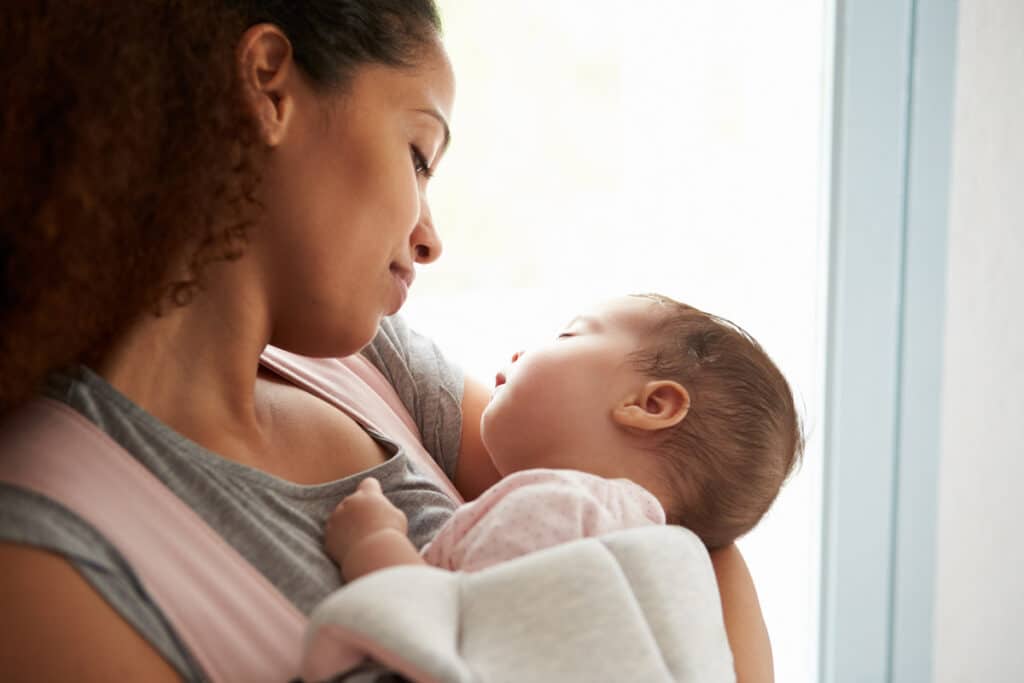
If you’re in a season of having kids or considering having kids, chances are you know someone who has experienced Postpartum Depression (PPD). Studies show as many as 21% of new moms experience PPD (Wisner et al., 2013), but what does that actually mean? We are going to break down the symptoms associated with PPD so you can know what to look out for and know how to seek help.
What Postpartum Depression is NOT
Let’s start with an understanding of what Postpartum Depression is NOT. PPD is not the same thing as “baby blues” or “postpartum blues.” These terms often get conflated with PPD, but there are some important distinctions. Baby blues only last for two weeks after delivering a baby and happens in up to 85% of women. This often involves changes in mood, tearfulness or feelings of overwhelm- but importantly the symptoms come and go and the person overall feels like themselves.
Symptoms of Postpartum Depression
Conversely, postpartum depression does not go away after those two weeks, and is serious enough to impact functioning in day to day life. Many people know that typical depression (non-perinatal) often includes sadness, crying spells, and having a hard time getting out of bed. While these symptoms can be present in PPD, what many people don’t know about PPD is that often women with PPD also identify experiencing irritability, agitation, and anger. These mood changes often feel out of character for the person experiencing them. PPD often comes with symptoms of anxiety; in fact, almost two-thirds of women who screened positive for depression in one study also experienced anxiety (Wisner et al., 2013).
PPD can cause new moms to feel apathy and hopelessness, which can lead to further isolation. Moms experiencing PPD may find themselves not wanting to do the things that used to bring them joy or happiness, leading to even further loneliness. PPD can also cause insomnia and appetite changes, resulting in extreme fatigue (which goes beyond the “typical” fatigue associated with the newborn period).
Women with PPD might have a harder time bonding with their babies, resulting in intense feelings of guilt, shame, and worthlessness. This often involves negative self-talk and doubts about their ability to be a good parent, for example, “I’m a failure as a mother,” or “I can’t do this.” This can also impact maternal identity development and partnerships.
Seeking Support from a Mental Health Professional
If you or someone you know is experiencing these symptoms and is noticing a negative impact on day-to-day functioning, it might be time to seek help from a professional. Psychotherapists who have specialty training in this area are known as PMH-C (Perinatal Mental Health Certified), and can help new parents navigate the challenges associated with PPD. At Wildflower, many of our staff hold this certification and are uniquely equipped to help people heal from PPD. In the words of Postpartum Support International, “You are not alone and you are not to blame. Help is available. You will get better.” Reach out to us with any questions or to schedule your initial appointment. For more information about perinatal mental health conditions and treatment, we invite you to check out our free Pregnancy and Postpartum Mental Health Guide.
References
Davis, W. (2021). Perinatal Mood and Anxiety Disorders: Components of Care [Training program]. Postpartum Support International.
Wisner, K. L., Sit, D. K., McShea, M. C., Rizzo, D. M., Zoretich, R. A., Hughes, C. L., Eng, H. F.,
Luther, J. F., Wisniewski, S. R., Costantino, M. L., Confer, A. L., Moses-Kolko, E. L., Famy, C. S., & Hanusa, B. H. (2013). Onset timing, thoughts of self-harm, and diagnoses in postpartum women with screen-positive depression findings. JAMA Psychiatry, 70(5), 490–498. https://doi.org/10.1001/jamapsychiatry.2013.87

